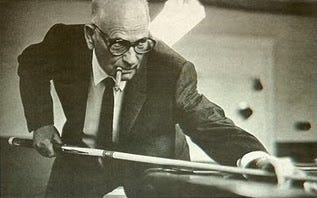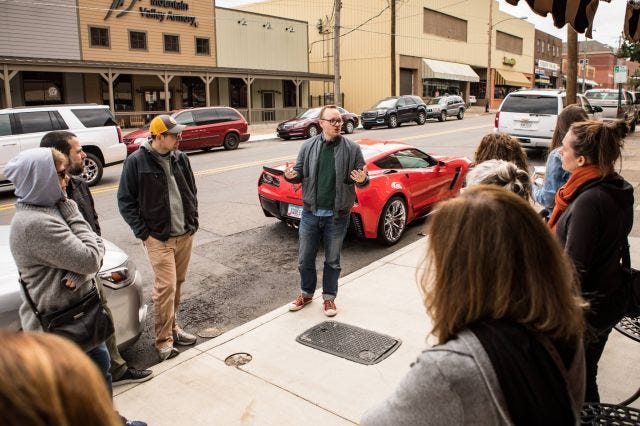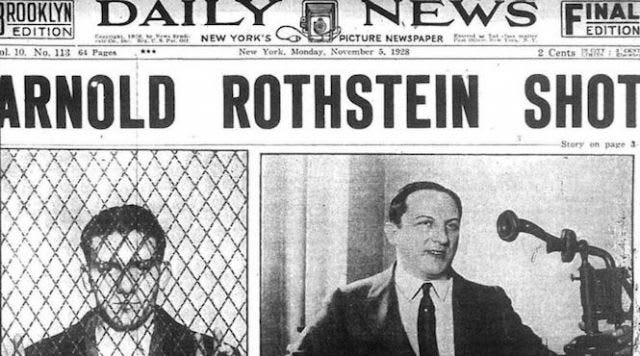Villains in the valley

Last week I traveled back to Hot Springs for the Valley of the Vapors Independent Music Festival. The VOV is an incredible five day music and art festival that is now in it's fourteenth year. I was at the first-ever VOV many years ago, almost entirely by chance, when it was a much more modest affair than it is today. Back then it was a handful of bands playing at a bar. Today it's fifty-plus acts from all over the world that perform at the Low Key Arts building on Park Avenue. Low Key Arts grew out of this festival over those years, a product of Shea Childs, who grew up in Hot Springs, and Bill Solleder, her partner, who moved there with her those many years ago to raise their family. They built Low Key Arts into an impressive arts non-profit that has played a major hand in creating an energetic and ecclectic arts and music scene in that small town. Low Key Arts also played a major role in helping my family live in Hot Springs last year while I worked on the Vapors by allowing me to work for them part-time as their director. But truly all I did during our time in Hot Springs was steer a ship that Bill, Shea and their friends, board members, volunteers and community had set on course with the wind steady behind their sails. I learned a lot more than I contributed, that's for sure.
I went back for the VOV because I was invited to give a walking tour of downtown Hot Springs as part of the festival. My tour was called "Villains in the Valley," and I tried to highlight some locations and stories that aren't often told in the various museums and historical writings about Hot Springs's underworld and criminal past. In the end I chose some stories that were about true villains, like the crooked cop who ran prostitutes out of barrooms and later ran his own casino where he hired palm men and dice mechanics as dealers to cheat his customers, or the little boy who helped lynch a black man and then grew up to be a crooked judge who hired mobsters to help him collect payoff money from the city's gambling community. But some of the stories I chose weren't about villains at all. They were about gamblers like Nick the Greek Dandalos, who once walked into the Arlington Hotel with $20,000 and walked out with over $500,000 after playing stud poker all night in the suite of a New York lawyer, but only after offering to cut cards for the entire half million before he left. Or Titanic Thompson, the greatest con man in American history, who used to sit on the veranda of the Arlington and bet tourists he could throw a peanut on the roof of the Waukesha Hotel across the street.

It was the first time I had ever tried anything like that before, and I think it probably went ok. But I was energized by how good it could have been, perhaps if I spent more time thinking about the best way to do it or perhaps if someone more charismatic than me lead it. But it was clear that downtown Hot Springs is a perfect place for walking tours. I'm considering organizing another one when the weather warms up, perhaps in the summer if I can't get back for Derby Day to do it then. I'll keep people posted if I do, in case anyone would like to join.
One of the stories I told on the tour was about Hubert "Daddy Warbucks" Cokes, who grew up in Hot Springs but later traveled the country as one of the biggest pool stakehorses. He backed none other than Minnesota Fats, as well as many other legendary pool hustlers. He also shot and killed no fewer than a half dozen men, including the Hot Springs Chief of Police in a fight over a girl. He was never convicted for any of the killings, successfully pleading self defense in each and every case where he was brought to trial. He was a protege of Titanic Thompson's, and the two men were road partners for many years as Cokes was coming up.
Cokes and Titanic Thompson were rumored to be involved in the murder of Arnold "The Brain" Rothstein, Rothstein was also known as the "Big Bankroll," because he was an investor in many major criminal enterprises in America, particularly during prohibition. He's perhaps best known as being the mastermind behind the fixing of the 1919 World Series. Rothstein was incredibly wealthy, worth over $10 million in 1925, but he gambled heavy and high. After a three day long poker game that included Thompson, Rothstein lost over $300,000. He refused to pay, claiming that his opponents were cheating. He was probably right. Thompson and Cokes were more than just cheaters. Cokes used to organize poker games in Hot Springs just to have his friends show up and rob the games and split the money with him later. Rothstein walked out of the game without settling up. When the gamblers pressed him for the money later, he told them they'd have to wait until after the election. He was expecting to win over $500,000 in bets he made on Herbert Hoover winning the presidential election. The gamblers must have been Democrats, because Rothstein was shot and killed during a business meeting in the Park Central Hotel in Manhattan just two days before the election.

I tell you this story because I wanted to share with you an article I wrote last week for The Ringer about gamblers who make their living today betting on politics. Once upon a time betting on elections was a big deal in Hot Springs, too. Most bookmakers took bets on the elections. But even more curious, the betting odds on the local elections in Hot Springs politics would sometimes guide the news coverage of who was likely to win, especially during the tumultuous political showdowns throughout the 1950s between the various gambling factions. Gambling on politics is nothing new, though it's never not been fascinating.
If you want to learn more about Low Key Arts, check out their website. And if you like what you see then consider giving them a tax-deductible contribution. They're doing great work and they survive on the generosity of donors and volunteers. You can donate at this link.
Yours in villainy,
David


